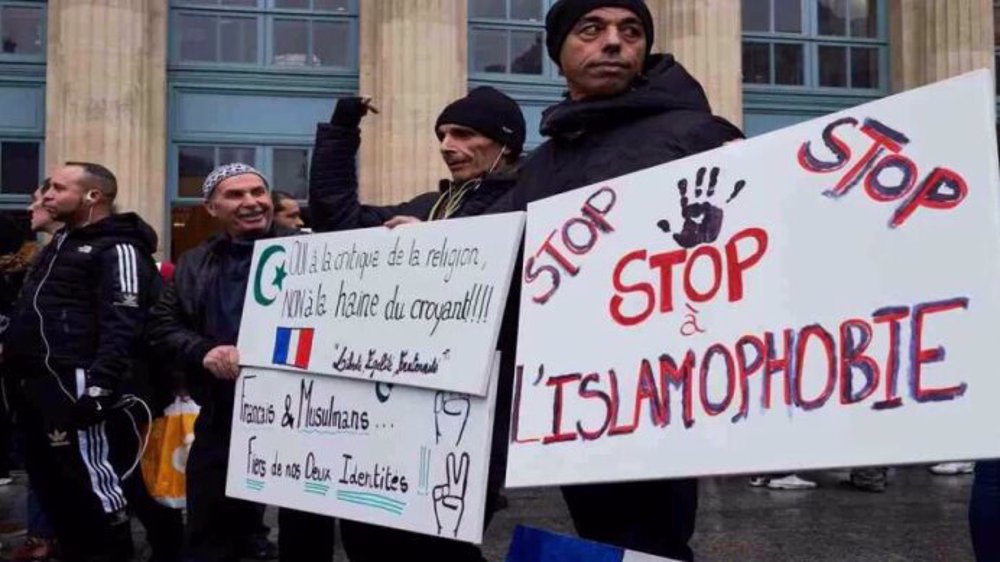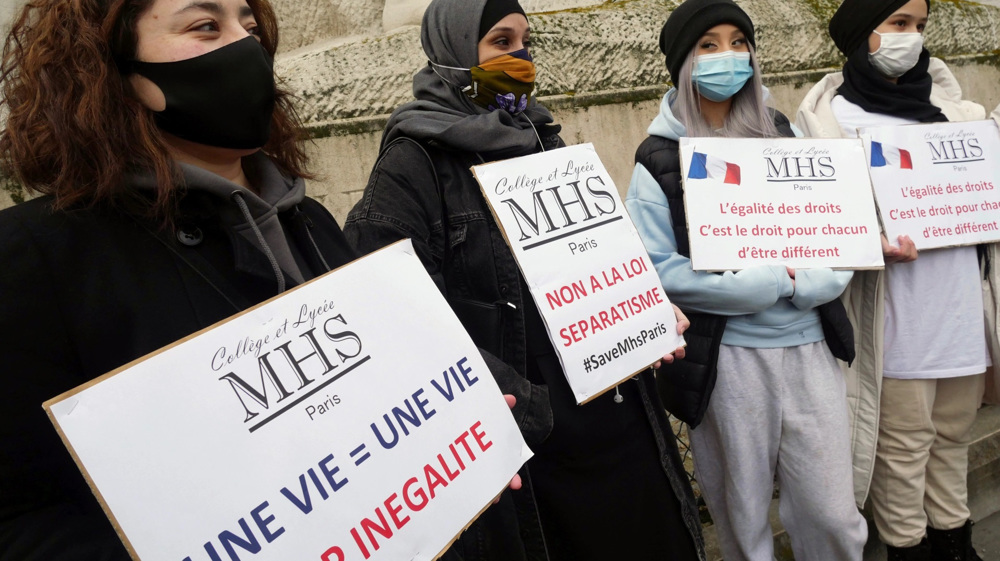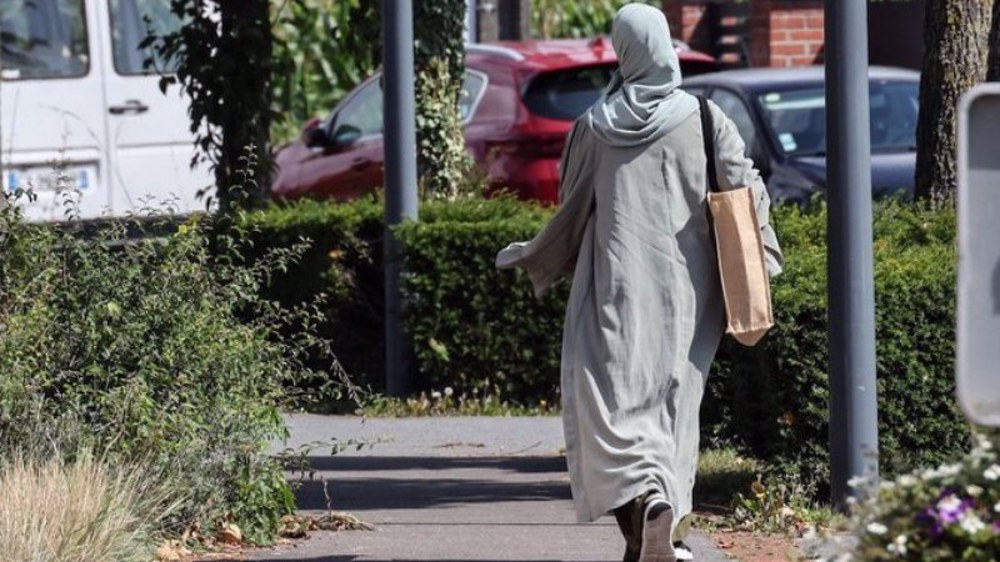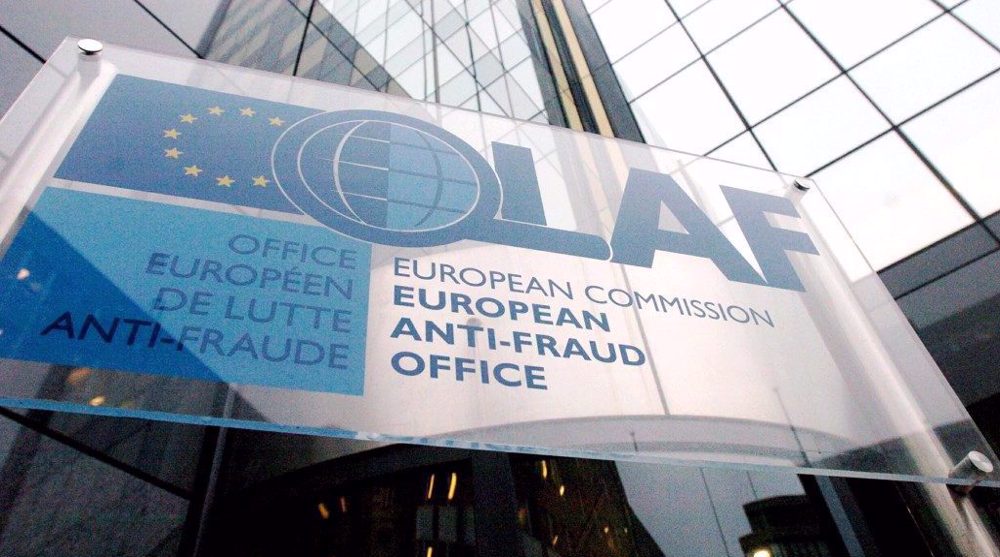Rights groups slam ‘state-sponsored’ Islamophobia facing Muslims across Europe
Several Muslim human rights groups have jointly denounced “state sponsored" Islamophobia facing Muslims across Europe, warning that Muslims are “unjustly placed on blacklists” round the continent.
Addressing the Organization for Security and Cooperation in Europe’s (OSCE) Human Dimension Conference in the Polish capital of Warsaw, seven Muslim civil society groups from Austria, France, Sweden, Spain, and the Netherlands sounded the alarm over the climate of “state-sponsored” Islamophobia in their respected countries.
Representatives from Austria and France also attended the OSCE conference, where each Muslim group had three minutes to address the session.
The gathering came days after Polish authorities banned Muhammad Rabbani, managing director of Cage, a UK-based advocacy organization, from entering Poland after his name appeared in a no-entry list to the Schengen zone.
During his speech at the conference, Adani el-Kanfoudi, spokesperson for Muslim Rights Watch in the Netherlands, said he was due to meet Rabbani alongside other European Muslim civil society groups.
“This incident, among many others, is a perfect example of a broader pattern, where key figures from the Muslim community are unjustly placed on blacklists,” said Kanfoudi.
“We are facing a distressing reality where Muslims are systematically targeted, a blatant violation of their constitutional rights. This discriminatory practice not only infringes upon individual liberties but also instills fear and division within our communities,” he warned.
El-Kanfoudi said hundreds of Dutch Muslims told his organization that they had been wrongly placed on the terror list by the Dutch authorities.
Being on the list meant that some of them had lost their livelihoods, faced banking and travel restrictions and been treated like “second class citizens,” he further said.
Another speaker was Arman Jeziz, who represented Insan group from Sweden, said a mosque had been burned down in Sweden as he was writing his speech.
“If books and mosques are being burnt, if Muslims are not permitted to dress as they choose, if they are subject to extensive surveillance, if they are frequently portrayed as problematic, and if they are viewed as potentially violent, where do the people in this room believe we are heading?” he said.
Nehal Abdullah, Cage's researcher in Austria, lashed out at the Austrian government's Operation Luxor, which authorized Austrian police to raid the homes of 70 Muslim households and the arrest of 30 Muslim academics in 2020.
No “single person affected by the raids was charged with any offence” and recent high court rulings condemned “the raids as unlawful and politically motivated,” she added.
Campaigners from France also addressed the session, saying the controversial ban on the abaya in schools and recent police killings of young North African men had further exacerbated tensions.
“Undressed, harassed, humiliated. The young girls in France suffer, yet no one reacts,” said Elias d’Imzalene, from Perspective Musulmanes.
“All my respect goes to these young Muslim girls who continue to fight for their freedom to remain Muslim even though the French state does everything it can to prevent them from remaining Muslim,” he added.
The new ban has been criticized by many politicians who argue that wearing the abaya garment, a loose outfit worn by adolescent girls for decency, is not a manifestation of religion and that students should not be excluded from classes because of their outfit.
The OSCE describes itself as “the world’s largest regional security organization”, drawing together 57 member states from Europe, Central Asia, and North America.
MSF slams Israeli actions, baseless allegations
Hamas slams Israel for pursuing 'Judaization' agenda in occupied West Bank
President: Iran will stand firm against threats, continue path of martyrs
VIDEO | Health concern grows as leptospirosis threatens displaced families in Gaza
VIDEO | Iran in 2025: From US and Israeli aggressions to diplomatic and scientific achievements
London mayor vows to stand up to Trump’s ‘bile’, bullying
VIDEO | Press TV's news headlines
Yemen military chief: Support will continue until Palestine liberated












 This makes it easy to access the Press TV website
This makes it easy to access the Press TV website